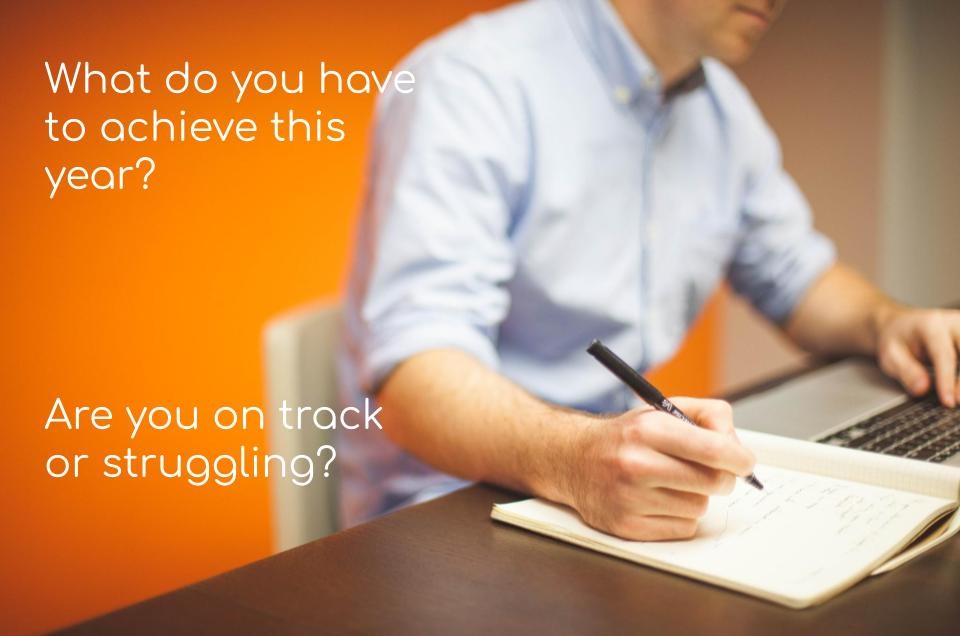It’s October, the clocks have just changed and you feel that time is ticking to the end of the year. Are you on track? Or are you feeling the pressure of all that you have to achieve before that December deadline, whether that is your own personal goals, or those that have been imposed on you?
Employers want you to meet your targets, and you might have set your own targets, perhaps with the aim of achieving a bonus or a promotion. The end result of this can be pressure, and this pressure can lead to stress and anxiety.
The answer isn’t to give up on your goals, but to find a better way to deal with the pressure, because the impact of that stress and anxiety can damage your chances or successfully reaching your goals.
Experiencing stress and anxiety can lead to:
- A fuzzy brain when you can’t think effectively
- A tendency to night-time worrying that damages your chances of sleeping well
- A lack of focus on the REALLY important things because you get distracted by the urgent ones
There is still time to change things and adopt some helpful strategies that will enable you to do the best you can.
For example one of the first, and most useful, things that you can do is to learn to properly relax. I don’t mean taking just a few minutes at the end of your day watching Netflix or scrolling on your phone, but quieting the mind as well as letting go of tension. Meditation, mindfulness practise or guided imaginal relaxation can all help and you can find many examples of how to do this online. Taking time to properly relax can give you more energy and a much clearer head, enabling you to think more clearly, complete your work more effectively and be more imaginative and creative in finding solutions to problems.
Making sure that you relax and let go of the cares and worries from the day is one very important way of ensuring that you can get a good night’s sleep. But you might need more. When we have a lot going on in our lives, that time when we turn out the light and settle down to sleep can be the time that our brain decides it finally has the space to bring up all the worries from the day to mull over. Using calming breathing techniques as we settle to sleep can be very helpful. Try taking a deep inhalation, while saying the word ‘one’ in your mind, followed by a longer exhalation, again repeating the word ‘one’. When you mind wanders from this focus, and it may well do so, you simply calmly bring your attention back to the breath and the word. No judgement, simply calm acceptance that this is natural. Calming your mind in this way will enable you to simply slip easily into sleep.
Another useful technique for tackling a habit of worrying is to learn to let go of thoughts. Recognising that one’s thoughts aren’t true and that you don’t have to focus on them, you can simply notice them and not get ‘hooked’ by them can be such a useful tip. It isn’t always easy to get into this habit, but it helps tackle overwhelm and worry, giving you headspace to deal with the things that you want to. So how do you do this? One way to practise this is to imagine you are by a river, it’s autumn and the trees by the water are full of leaves in beautiful autumn colours. As you watch, you see that the leaves are falling from the trees, landing on the water and disappearing off into the distance. Then, you simply pop your thoughts on a leaf and watch is float away. You do this for every thought that comes into your mind for a few minutes.
I have a recording of this exercise that you can access as you learn to do this, called Leaves on a Stream (link below).
Having learned to relax better and to ensure you get a good night’s sleep, what next?
The next step is to take a good look at your goals. If you have any control over these goals consider whether you are being realistic, whether there is any aspect that you can postpone, and prioritise what is the most important. We can often find ourselves experiencing stress because we concentrate on getting the urgent things done, at the expense of the really important ones. A helpful way of figuring out where to focus your energy is to use a technique such as the Eisenhower Matrix which guides you to divide your tasks into important/urgent/not important/not urgent. This can help you to delegate and postpone those tasks that are cluttering up your brain and your ‘to do’ list but that won’t get you any further towards your goals.
Finally, think about your motivation. When we feel exhausted and burnt out our motivation often plummets. If you have learned to relax your mind and body, improved your sleep and got a better handle on your goals then boosting your motivation is the final step to take to put you in the best possible place to reach those goals. Hypnosis is a really effective way of channelling your thinking, focussing your imagination on the suggestions that you want to accept and making it feel achievable and real! IN September I wrote an article about boosting motivation which is here (https://changingtimeshypnotherapy.com/how-do-i-motivate-myself-to-get-things-done/) if you would like to take a look. If you want to experience what hypnosis can do for your motivation, as part of this article, I provided a hypnosis exercise for you to try on boosting motivation.
Leaves on a stream recording is on the homepage of my website, scroll down to Listen at Home:
Find out more about the Eisenhower matrix here:









